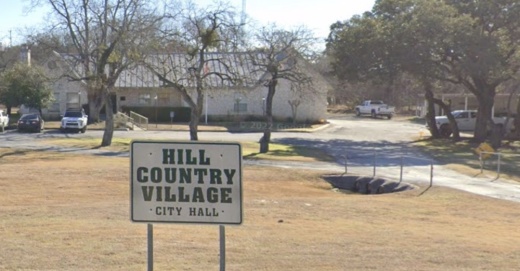Hill Country Village officials are exploring holding a special election this November and are floating a potential bond to fund an envisioned City Hall project.
No details have yet been determined, but City Council voted May 19 to hire the firm McCall, Parkhurst and Horton as the town’s bond counsel and to hire Frost Bank as the city’s financial adviser.
According to Hill Country Village officials, representatives from both companies will work together to craft a bond proposal complete with projected costs, scenarios and financing methods.
“We’re absolutely available to run any scenarios you need and do price points,” Frost Bank executive Kevin Escobar told the council.
Some council members said it is time to look at how best to use a city-owned 14-acre tract of undeveloped land at Bitters Road and South Tower Drive.
In November 2019, 62% of local voters rejected a measure that would have opened the property to commercial or mixed-use development. The land has since stood untouched, but for years local leaders have indicated part of the parcel could be used to support construction of a new City Hall.
Council Member Thomas Doyle on May 19 said an election would give residents their best chance to determine how to upgrade the town’s aging, cramped municipal complex at 116 Aspen Lane, a facility that includes the police station and municipal court.
While the city has not yet settled on specific proposals, local leaders are pondering whether to renovate and modernize the existing City Hall, raze the structure and replace it with a new building, or construct a new municipal complex on a portion of the 14-acre parcel.
“The purpose is to use a bond election as an opportunity to hear from citizens and what they’d like to see happen,” Doyle said.
City Administrator and police Chief Frank Morales said the latest estimates show that building a new City Hall complex at Bitters Road and South Tower would cost between $2 million-$3 million. Morales added upgrading the existing City Hall would be the cheapest of the potential options at about $1 million.
Doyle and other council members agreed the city could hold one or two town halls this summer where residents may discuss potential scenarios for improving municipal facilities and form a consensus. Aug. 22 is the state’s deadline to place an item on the Nov. 8 general election ballot.
“I’d like to know where the citizens want City Hall, irregardless of the costs,” Mayor Pro Tem Carl Register said.
Council Member Matthew Acock said he partially feels the city could give greater consideration toward renovating the existing municipal complex. He added he often hears from residents who say the existing building offers residents a sense of charm and comfort.
But Doyle said in spite of how residents may feel about the existing City Hall, there are needs to be met, such as ensuring the structure is compliant with the Americans with Disabilities Act.
In the citizen comment segment of the council meeting, resident John McNair suggested keeping City Hall in place and opening the 14-acre tract to a specific style of residential development. That way, McNair said, the city would not incur new debt and instead expand its property tax revenue stream.
“We could turn this property into a garden home development, with single-family detached homes, and put in heavy restrictions,” McNair said.
Mayor Gabriel Durand-Hollis said keeping the City Hall in its current home or relocating it does not matter as much as maintaining a modern, spacious, safe municipal complex.
“I believe we urgently should make alterations and additions to this building,” Durand-Hollis said.





